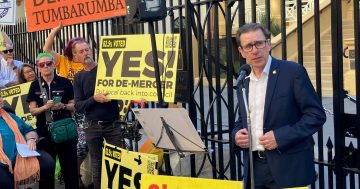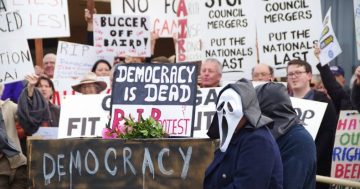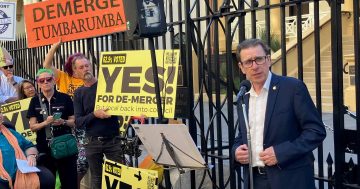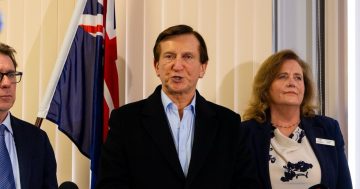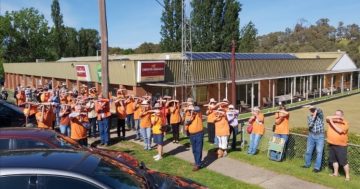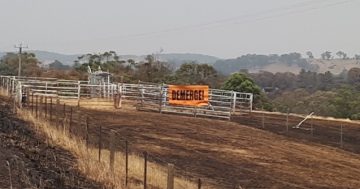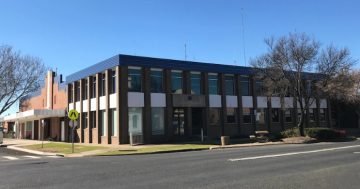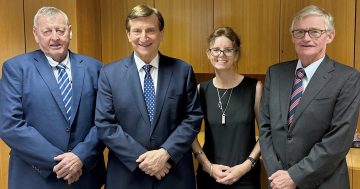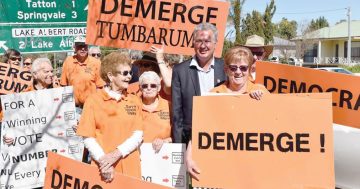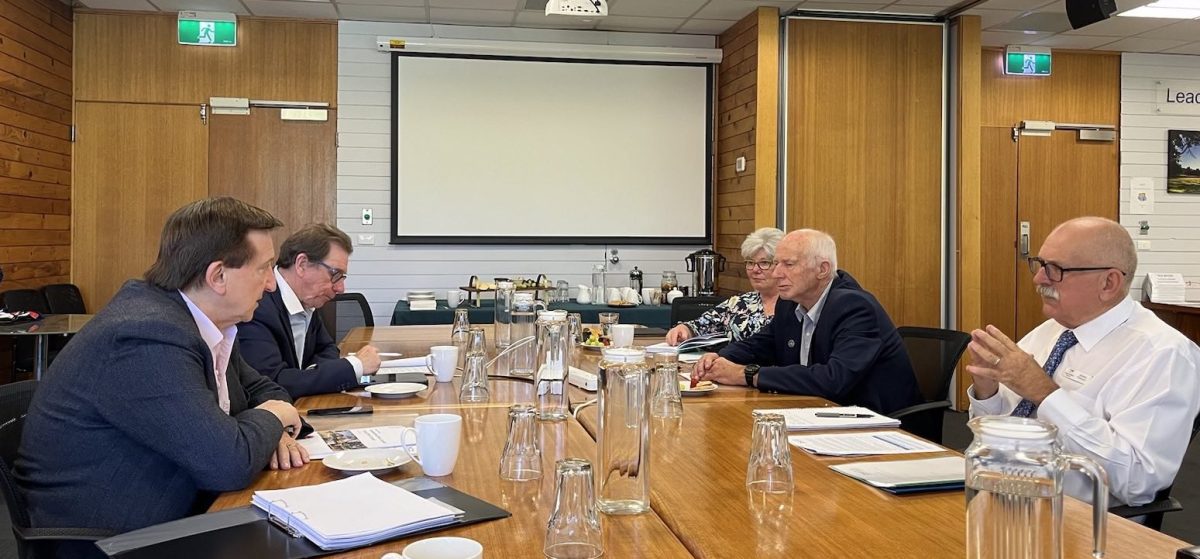
The meeting between (from left) Local Government Minister Ron Hoenig, Wagga MP Dr Joe McGirr and Snowy Valleys Mayor Ian Chaffey to discuss the challenges of demerging councils. Photo: Ron Hoenig MP Facebook.
Moves to demerge Riverina and Snowy Valley councils continue to rumble along, with State Member for Wagga Wagga Dr Joe McGirr reminding the government that regional communities can’t do it alone.
“I’ve consistently made it clear to the Minister that the government must provide financial and operational support if any demerger is to proceed,” he said after meeting with Local Government Minister Ron Hoenig in Tumut last week.
“I believe the Minister has a strong understanding of the council’s position, and I’m very appreciative of the constructive approach he has provided to this complicated issue and his willingness to engage with the council on this issue.
“I’m looking forward to the council demonstrating it can create new councils that will be sustainable for the future as the next step towards providing a realistic pathway towards demerging.”
The process of forcibly merging local councils across NSW was begun under former NSW premier Mike Baird and local government minister Paul Toole with the promise that it would save up to $2 billion over 20 years.
The move proved to be wildly unpopular, sparking widespread protests, acrimonious clashes between local and state governments, and claims that the process was ultimately a waste of time, effort and money.
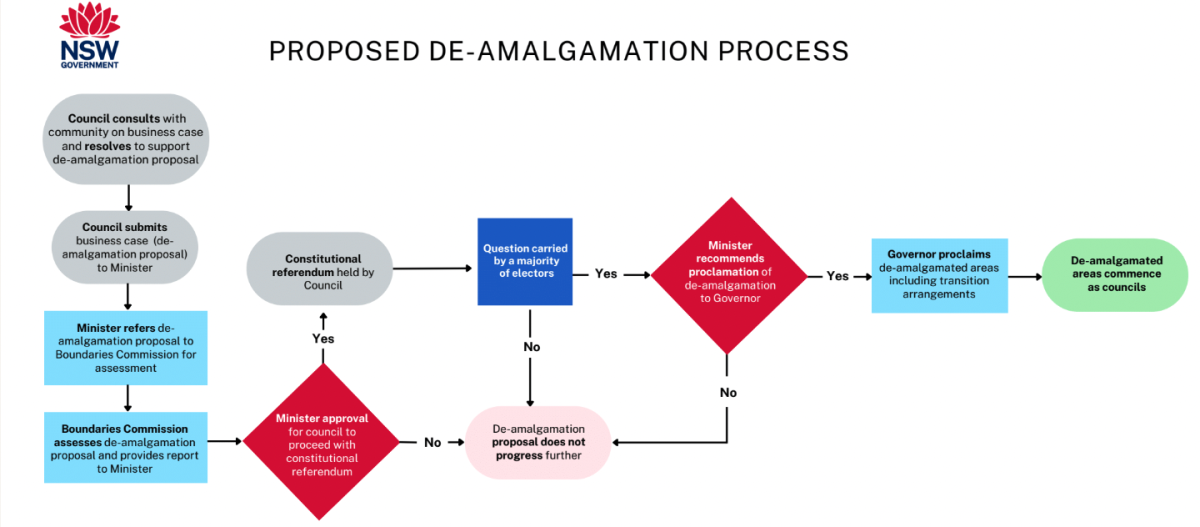
A flow chart of the proposed demerger process. Photo: Supplied.
Last month, the NSW Government introduced new legislation that it hopes will assist forcibly merged councils to part ways.
Those wishing to de-amalgamate would need to develop a robust business case that considers the financial impacts, presents strategic plans for continued service delivery and an LGA’s ability to fund the demerger.
“The forced amalgamation of councils was a disastrous policy that has had a profound impact on many NSW councils, including Snowy Valleys,” Minister Hoenig said as he outlined the reasoning behind the government’s proposed demerger legislation.
“The government supports the rights of councils and communities to pursue a demerger, providing the new councils will be financially sustainable.
“The council’s business case is currently before the Local Government Boundaries Commission for independent assessment and review.”
The amendments to the Local Government Act promise a more “democratic process”, and councils will be required to undertake community consultation on the business case.
But critics fear councils will not have the funds to proceed.
Last month, the president of the Local Government NSW board, Cr Darriea Turley, described the move as “sleight of hand”.
“It’s a cunning public relations exercise by the State Government so that it looks good in the eyes of ratepayers by agreeing to allow de-amalgamations, while at the same time knowing councils cannot foot the bill to carry them out,” Cr Turley said.
The government’s bill does include transition arrangements for councils that have already been approved for demerger, including Cootamundra-Gundagai, which is expecting the government to fulfil the original promise to foot the bill.
While Dr McGirr agreed that LGAs must prove to be financially viable, he insisted that the state must be willing to meet the costs and provide the operational support needed to make it happen.
“After all, the communities did not ask for the mergers and they are paying the price for the state government’s mistake,” said Dr McGirr.
“They should not have to foot the bill to undo this mess.”
Original Article published by Chris Roe on Region Riverina.


